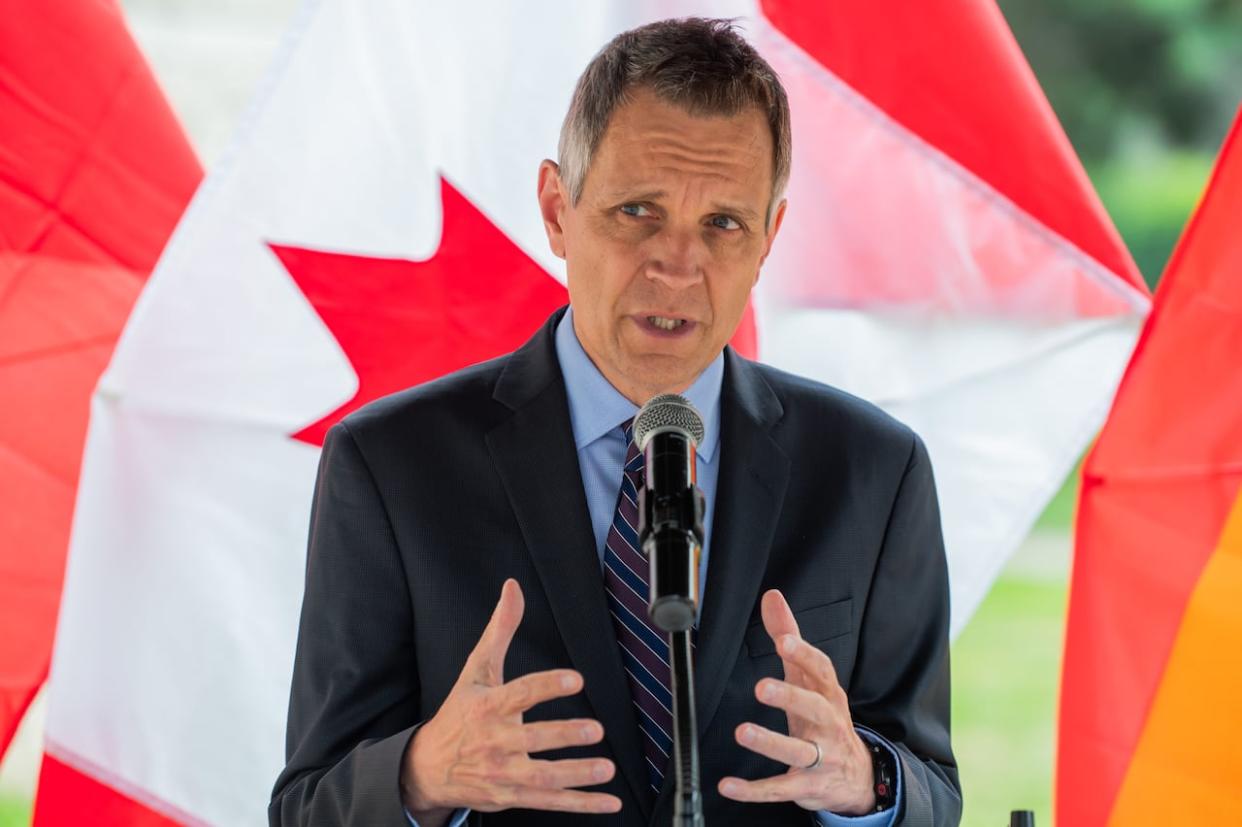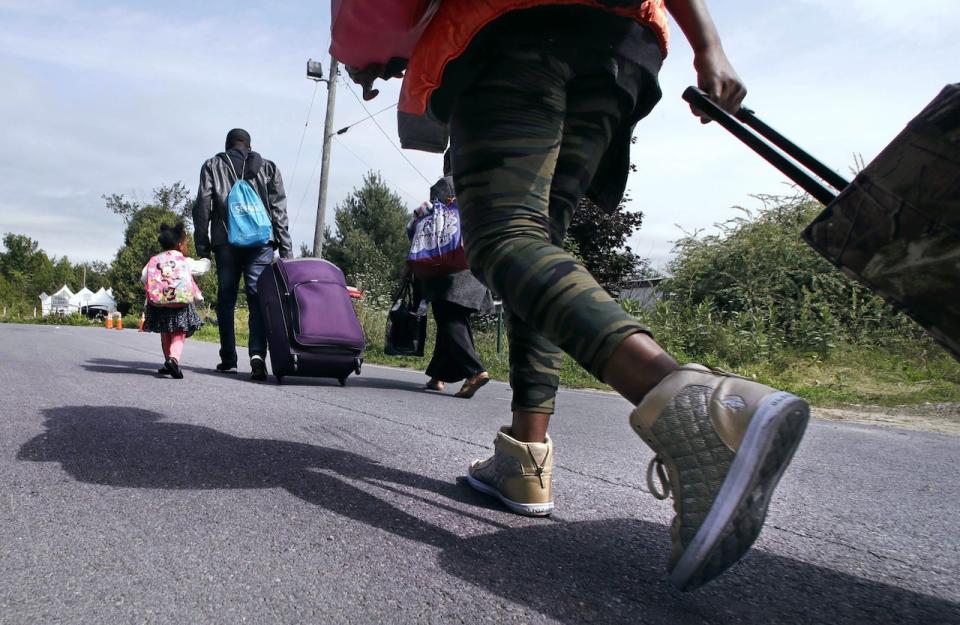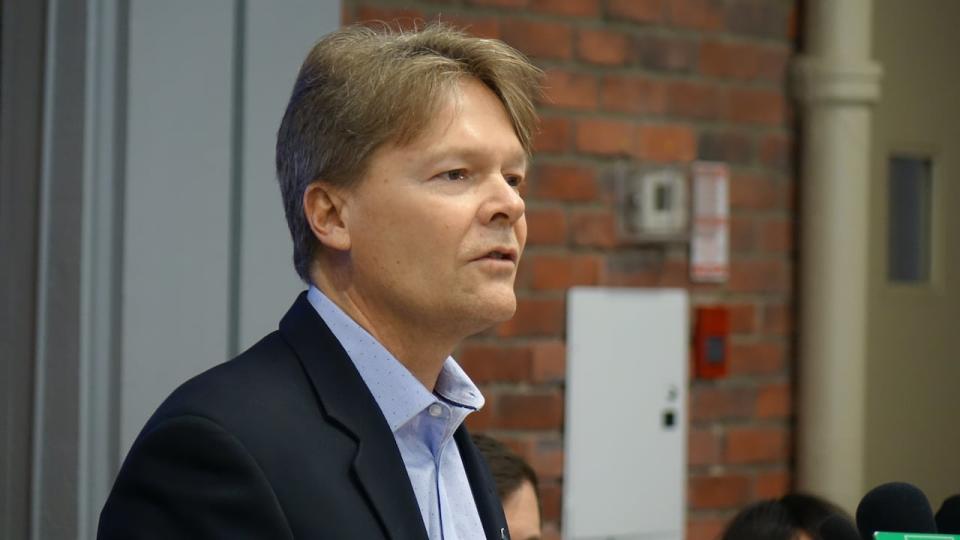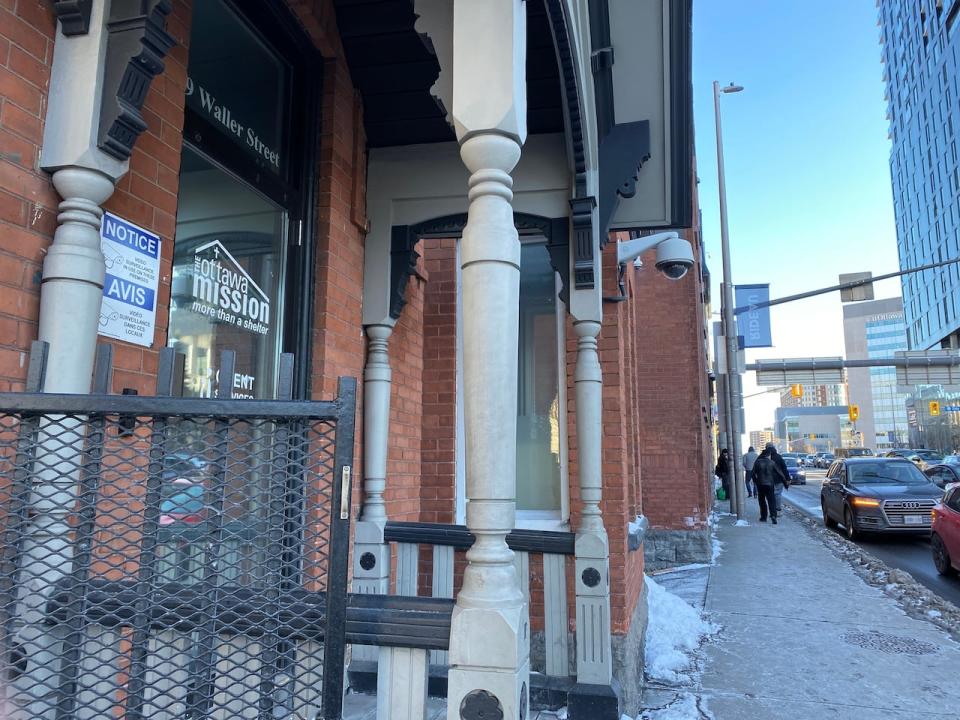City looks to federal budget for millions to house, support asylum seekers

The City of Ottawa is looking for $32.6 million from the federal government to build and operate a new welcoming centre, which would provide support to refugees and asylum seekers amid an unprecedented strain on the city's shelter system.
It's near the top of Mayor Mark Sutcliffe's wishlist for Tuesday's federal budget, which also includes money for the city's cash-strapped public transit service and ailing downtown.
The city is facing challenges in housing the rising number of people seeking asylum in Canada, Sutcliffe explained to reporters on Friday.
"We'd love to hear from the federal government on funding for a welcoming centre for those individuals who are arriving in the city," he said.
Staff outlined the cost of the new reception centre in a response to a councillor inquiry attached to the agenda for next week's community services meeting.
The proposal suggests a fulsome series of "wrap-around" supports, with a goal of diverting asylum seekers from the traditional shelter system and transitioning single asylum seekers into supportive, long-term housing within six months.
The city has requested $12 million from Immigration Refugee and Citizenship Canada (IRCC) for capital costs, and another $20.6 million over two years to cover operations. But staff noted they're working on updates.

Ottawa city staff say they couldn't predict the sudden surge in asylum seekers, which has put a strain on housing programs and shelters. (The Canadian Press)
Long-term solutions needed, say advocates
Shelters have been overflowing for months.
The issue gained widespread attention last year when the Ottawa Mission reported a surge that filled the shelter well beyond capacity, forcing many newcomers to spend their initial nights in Canada perched on plastic chairs or curled up on the floor of waiting areas.
The storm "continues to gather," according to CEO Peter Tilley, who also told CBC's All in a Day his staff have never seen so many people sleeping on the streets.

Peter Tilley, CEO of the Ottawa Mission, supports Ottawa's push for a newcomer welcoming centre. (Laura Osman/CBC )
"Everything ends up on the plate of the municipalities," said Tilley. "And that lower level of local government ends up scrambling to find short-term solutions when what we really need are long-term solutions coming from the other two levels of government."
Tilley would also like to see an end to different levels of government "punting" the political football, by eliminating the difference in services provided to newcomers who don't have the same status.
IRCC differentiates between asylum seekers and resettled refugees. Its website notes that asylum seekers are not eligible for federal settlement services, but may be able to access services funded by the province.
Provincial dollars on the line
Ottawa is far from the only city to face a strain on resources that it could not predict.
Toronto has been promised $162 million of a $362 million top-up to the Interim Housing Assistance Program (IHAP), which the city said still falls short of what it requires.
Ottawa city staff say they've submitted a $33.9 million application through the program, of which it's received an interim advance payment of $5 million.
"Although this funding will help the City to address some of the funding shortfalls experienced throughout 2023, it does not provide the vital, ongoing funding that is needed to support the long-term capital and operating requirements to house newcomers or migrants," the report reads.

The Ottawa Mission CEO Peter Tilley says the downtown service hub has seen an influx of asylum seekers which peaked last fall. (Anne-Charlotte Carignan/Radio-Canada)
It went on to say that it's "difficult to project" the total cost of providing short-term shelter and long-term housing supports, but noted that adequately addressing requirements for newcomers will require ongoing funding from both the federal and provincial governments.
When Premier Doug Ford visited Ottawa earlier this month, he announced up to $120 million dollars in support for shelters and homelessness over the next three years.
But the money is conditional.
City staff later told councillors that unlocking the funds will require federal operating funding for refugee and asylum seekers of $80 million in 2024 and 2025.

